improving extractives governance
PNGEITI Report Releases
The EITI holds all implementing countries to the same global standard. Through Validation, the EITI’s quality assurance mechanism, implementing countries are assessed on their ability to meet the provisions of the EITI Standard.
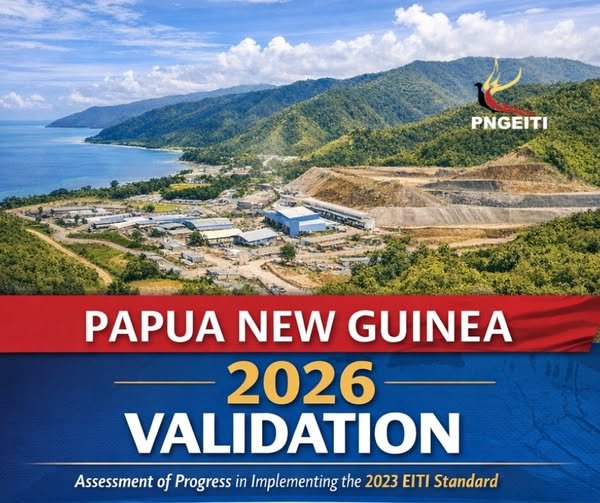
Papua New Guinea set for Validation
The Executive Director of Papua New Guinea Extractive Industries Transparency (PNGEITI), George Kauli has announced that PNG will be validated for the third time since it signed up to implement the EITI global best practice Standard in 2013. Mr. Kauli when announcing the country’s EITI Validation set for April 1, 2026 said there has been recent efforts focused on closing gaps in data accessibility, strengthening Multi-Stakeholder Group (MSG) functions and addressing 2022 Validation Corrective Actions to enhance transparency in the extractive sector. Mr. Kauli explained that validation is an essential feature of the EITI implementation process intended to provide stakeholders with an impartial assessment of whether EITI implementation in a country is consistent with the EITI Standard. PNG underwent its first validation in 2018 where the EITI Board granted ‘meaningful progress’ in implementing the EITI Standard. The Board commended PNG’s efforts in implementing several reforms to address weaknesses in government systems and in improving the level of transparency in the country’s extractive sector. In the 2022 Validation, PNG scored a moderate 70.5% which it now aims to improve in the coming third Validation. Mr. Kauli expressed concern that failure to make considerable improvements in keyareas such as addressing outstanding corrective actions from 2022, improving MSG functions, and adopting new requirements under the revised 2023 EITI Standard, including energy transition, gender and anti-corruption could result in serious consequences for PNG such as suspension from EITI in accordance with the EITI Standard. However, Mr. Kauli is optimistic that improved ranking in this year’s Validation would mean a positive image for the country, especially at this time when PNG is set to be grey-listed by the Financial Action Task Force. Certain areas in the activities of EITI can have positive impact on the grey listing status of PNG, and Beneficial Ownership disclosure is one area where FATF recommendations and ElTI standards overlap and this can help PNG come out of the grey-list status. Meanwhile, the EITI International Secretariat (IS) Validation Lead, Riley Zecca has invited Stakeholders to contact the IS with any comments and concerns regarding EITI implementation in Papua New Guinea. The EITI International Secretariat is seeking stakeholder views on PNG’s progress in implementing the EITI Standard between November 2022 and April 2026. Stakeholders can check www.eiti.org for the Papua New Guinea 2026 EITI Validation: call for views on stakeholder engagement to participate.
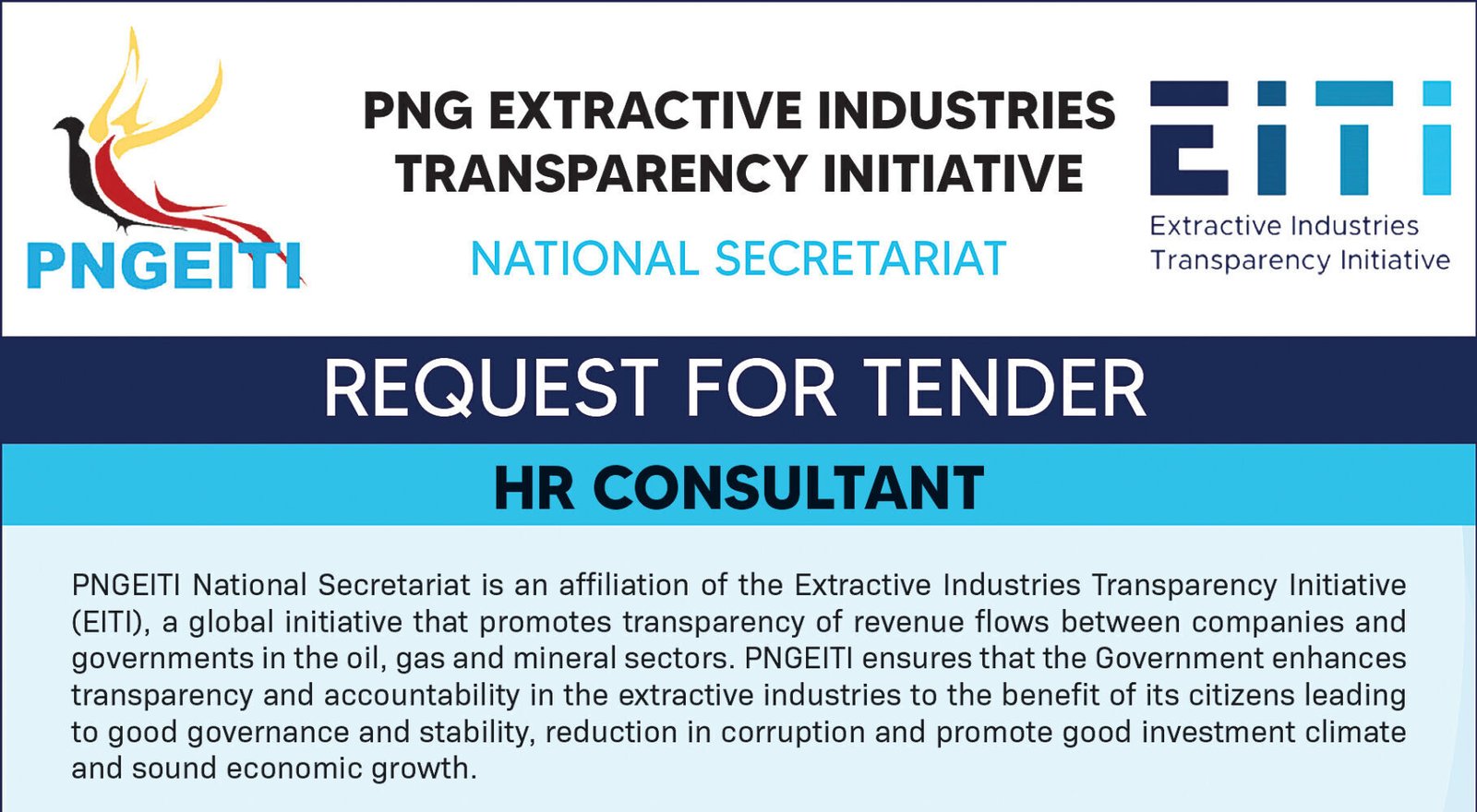
Request for Tender: HR Consultant – PNGEITI National Secretariat
The PNG Extractive Industries Transparency Initiative (PNGEITI) National Secretariat invites sealed Expressions of Interest from suitably qualified and experienced individuals or firms to provide Human Resources consultancy services. PNGEITI is part of the global Extractive Industries Transparency Initiative (EITI), which promotes transparency and accountability in revenue flows between governments and companies in the oil, gas, and mining sectors. Through its work, PNGEITI supports good governance, reduces corruption risks, and strengthens public confidence in the management of extractive resources in Papua New Guinea. The consultancy will be engaged for a three (3) month contract period. The scope of work includes reviewing existing HR structures and practices within the PNGEITI National Secretariat, benchmarking them against comparable statutory bodies, and developing an integrated People and Culture Operational Manual. This manual must align with PNG labour laws, Public Service General Orders, and public sector best practices. The consultant will also be required to develop supporting HR policies, frameworks, and process guidelines that promote effective workforce management, organisational culture, and performance accountability. All applications will be assessed through the standard procurement process. Interested applicants may request further information by contacting the Manager Finance, Administration & Human Resources via email or through the PNGEITI LinkedIn page. Completed applications must be hand delivered to Treasury House, Ground Floor Front Desk, or submitted via email by close of business at 4:06 pm on 16 January 2026. This request is Authorized by the Executive Director of the PNGEITI National Secretariat.
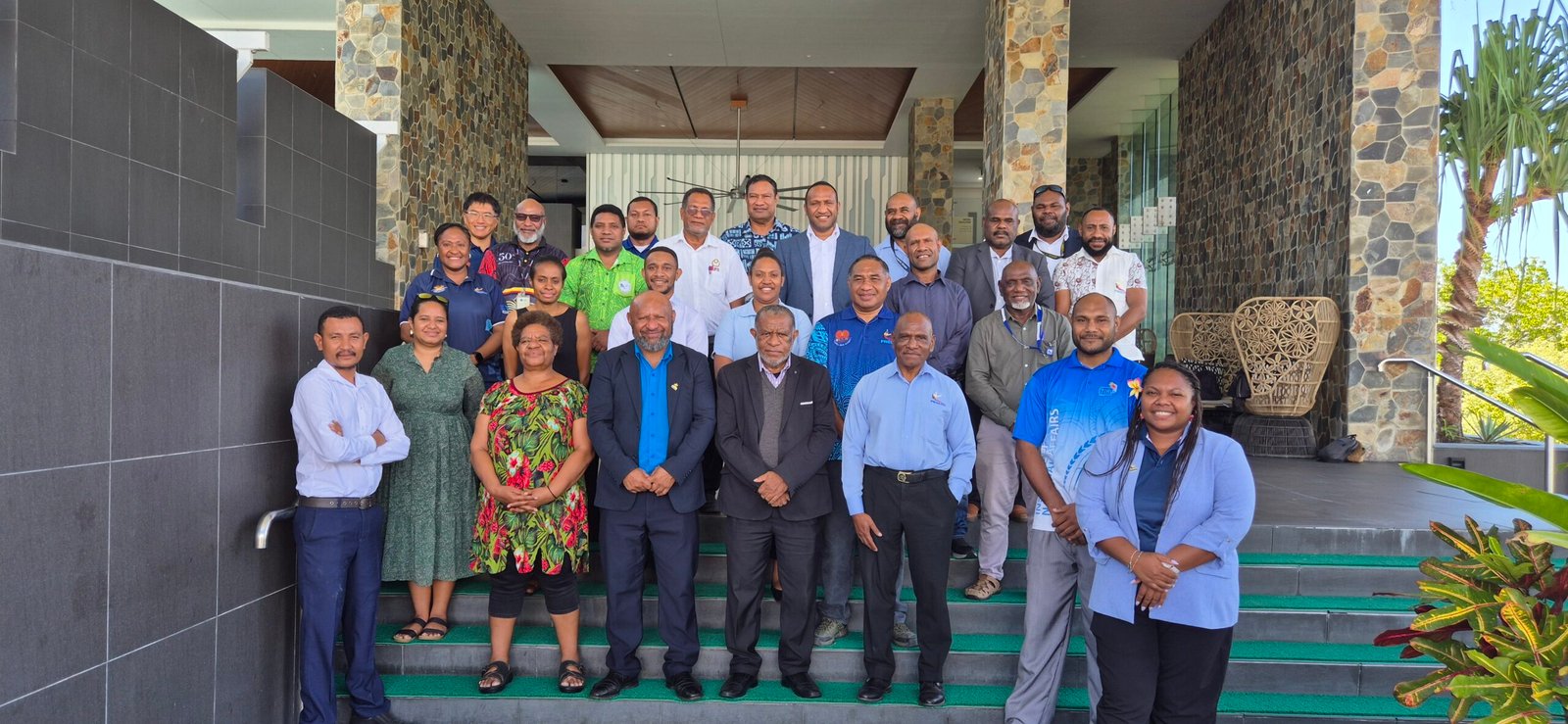
MSG FOURTH QUARTER MEETING COMPLETED
The PNGEITI Multi-Stakeholder Group (MSG) held its fourth quarter meeting of 2025 at Loloata Island Resort, Central Province on Friday, December 19. Acting MSG Chair and Deputy Secretary, John Uware chaired the meeting. The meeting brought together MSG members and PNGEITI National Secretariat to discuss issues of importance concerning the National Secretariat. The meeting began with the review of matters arising from meeting minutes of third quarter followed by update on special projects and they include: National Secretariat Operational updates from respective branches were next on the agenda followed by Executive Director’s Report.
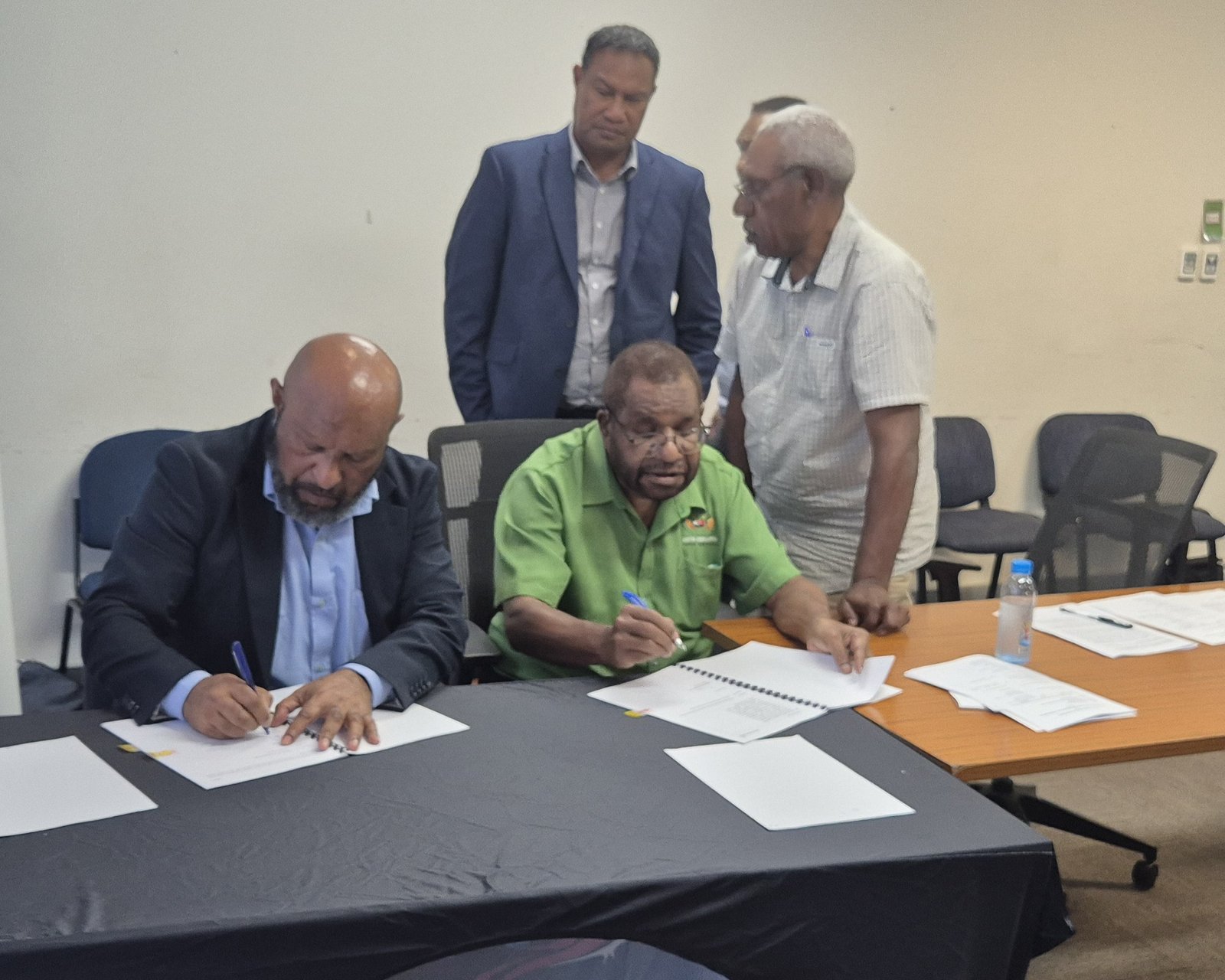
PNGEITI SIGNS MEMORANDUM OF UNDERSTANDING WITH AUDITOR GENERAL’S OFFICE
The Papua New Guinea Extractive Industries Transparency Initiative (PNG EITI) National Secretariat has signed a Memorandum of Understanding (MOU) with the Office of the Auditor-General (AGO) aimed at strengthening participation and effective collaboration among government reporting agencies to enhance quality data in EITI reports. Executive Director of PNGEITI, George Kauli and Auditor-General Gordon Kega signed the MOU on 28th November, 2025 in Port Moresby. The signing of the MOU is an important step towards improving the quality of revenue data from the extractive sector. The MOU enables the Auditor General’s office to undertake the Agreed Upon Procedure (AUP) of testing receipts of the revenue data provided by government entities for 2024 PNGEITI Report and beyond, providing assurances and reliability of the revenue data. Mr. Kauli said “this exercise (signing of MOU) is part of the government’s commitment to ensure accurate and transparent reporting of revenue flows from the extractive industries as required under the National Government’s policy for transformation and accountability in the extractive sector in PNG and involving EITI standards and requirement”. Mr. Kauli expressed his gratitude to the Japanese International Cooperation, thanking JICA for coming onboard with both financial and technical support for this project. Mr. Kauli thanked the two beneficiaries of this project, the National Petroleum Authority and the Office of the Attorney General. He also thanked government reporting agencies such as Internal Revenue Commission, Mineral Resource Authority, the National Petroleum Authority, PNG Customs, Department of National Planning and Monitoring, Department of Treasury and Conservation Environment Protection Authority. Mr. Kauli described the signing of the MOU as a huge milestone achievement in the implementation of the project. “The project now looks forward to foster institutional strengthening and include more capacity building for the eight AGO staff, NPA and the National Secretariate officers as well and also to increase AUP testing on all government entities,” he said. Auditor-General Gordon Kega said he was pleased to sign the MOU, describing it as a “significant milestone” that will strengthen accountability in PNG’s resource sector. He said the partnership fits well with the AGO’s responsibility to protect public funds and to ensure the country’s natural wealth is properly managed. “This MOU shows our shared commitment to transparency. Working together allows us to make sure the revenue from our extractive industries is properly accounted for and used for the good of our people,” Mr. Kega said. He added that the partnership with PNG EITI is more than just a technical arrangement as is an important step towards improving public trust, strengthening government systems, and supporting better governance. The Japan International Cooperation Agency (JICA), which funds Phase 2 of the Project for Improving Resource Related Revenue Management, welcomed the signing as an important achievement. Chief JICA representative in PNG, Hideaki Matsuoka said JICA is excited to be part of this milestone as stronger partnership between PNGEITI and AGO as a result of the MOU will help improve the sharing of information across government agencies. Deputy Secretary for Economic policy at the Department of Treasury and Acting Chair of the PNGEITI Main Stakeholder Group, John Uware earlier made welcome representatives from JICA Office, AGO and other government departments to this milestone occasion. “The PNG Department of Treasury, which facilitates the implementation of EITI Standard in PNG will render its continued support to achieve the agreed outcomes and we look forward to successful execution of this Understanding,” said Mr. Uware.
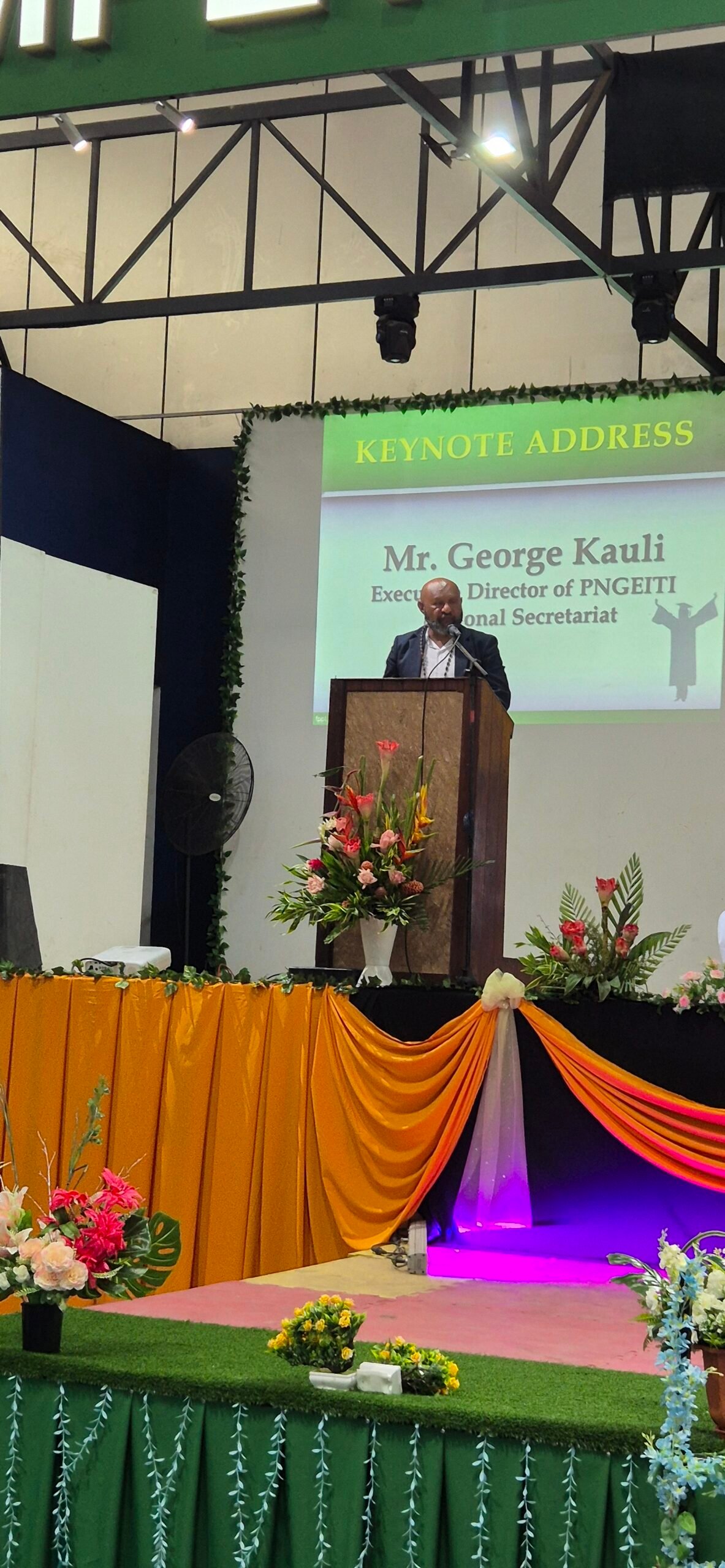
tHE VALUES YOU HOLD TODAY DETERMINES THE KIND OF LEADERS YOU WILL bECOME TOMORROW- KAULI TELLS OVER 200 GRADUATING STUDENTS
Over 200 graduating students at Don Bosco Technological Institute in Port Moresby have been urged to display the values of life such respect self- discipline, humility and integrity as these will sustain them when challenges of life tests them in the real world. The Executive Director of Papua New Guinea Extractive Industries Transparency Initiative, George Kauli told over 200 graduating students at Don Bosco Technological Institute’s 34th graduation that values of life instilled in them through education will sustain them in life. “Graduates, your future begins now, in this moment. The dreams you carry today, the courage you show today and the values you uphold today will determine the kind of leaders you will become tomorrow,” said Mr. Kauli. “Your education at Don Bosco has not only given you technical skills, but has instilled the tools that will sustain you when the challenges of life begin to test your resolve,” he said. “Always remember, every lasting transformation begins with ordinary individuals who choose to do what is right, even when no one is watching. Like Bosconians say, do ordinary things extra-ordinary,” Mr. Kauli reminded the students. He thanked the parents and guardians for their sacrifices, love and unwavering support that have helped their children reach this milestone. “ To the DBTI faculty and staff, thank you for your dedication and tireless commitment to shaping not only the minds but also the hearts of our young people. Your work continues to build the foundation of leadership and service in our nation”, he said. “And to you, the graduates of 2025, congratulations! You have achieved a significant milestone through perseverance, faith and determination. But remember, this is not the end of your journey, it is the beginning of your mission: to live your faith, apply your knowledge and serve with integrity,” he continued. “Dream boldly, act with purpose, and anchor your life in faith and service. As you step forward into the world, remember that the future of Papua New Guinea rests in your hands, and your hope will light the path for others,” he concluded.
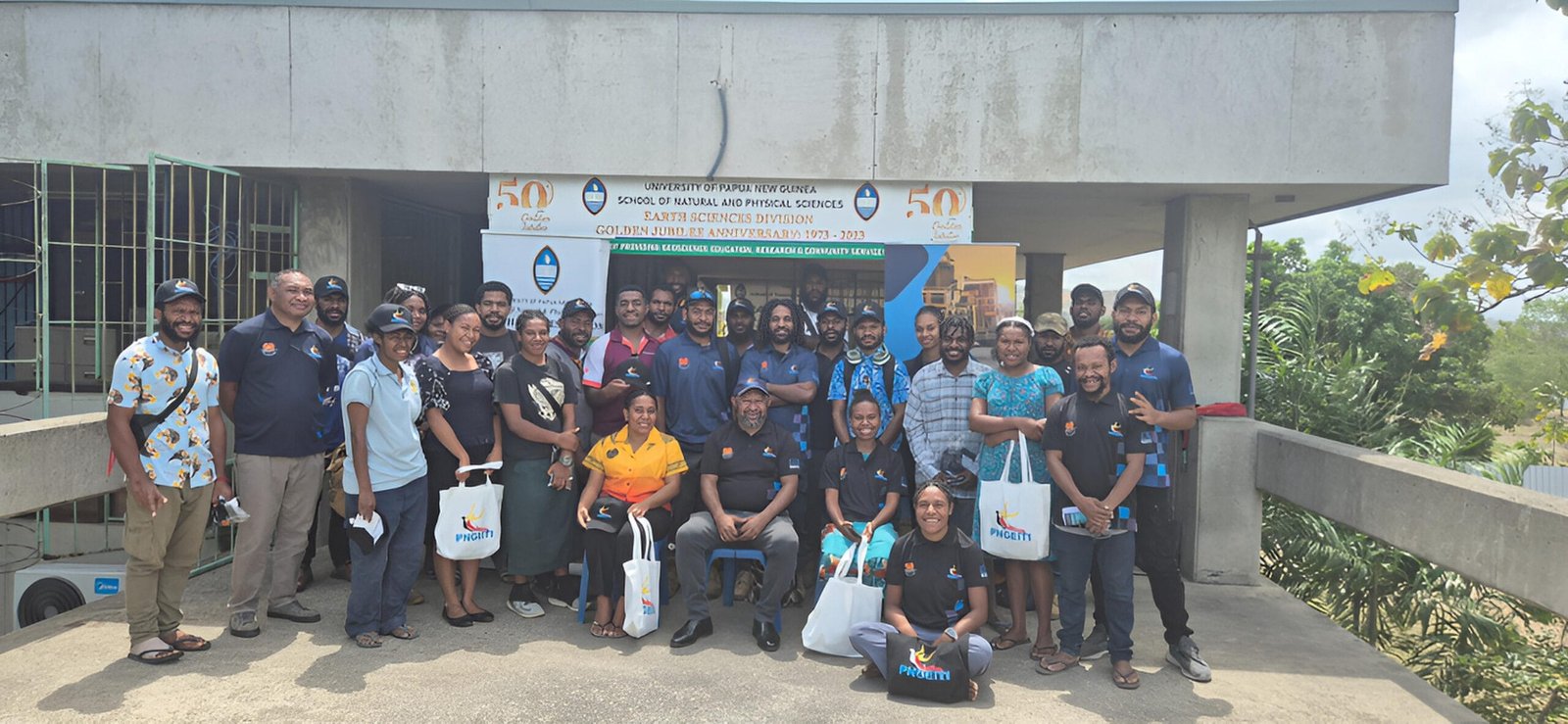
PNGEITI CONTINUES GUEST LECTURES AT UPNG’S SCHOOL OF NATURAL AND PHYSICAL SCIENCES
The Papua New Guinea Extractive Industry Transparency Initiative (PNGEITI) continues its mission to promote understanding of natural resource management, strengthen public and corporate governance and accountability and provide the data to inform policymaking and multi-stakeholder dialogue in the extractive sector. PNGEITI on the 22nd August, continued with its mission, conducting joint lectures with the School of Natural and Physical Sciences at the University of Papua New Guinea. With an aim to forge a long term partnership with the country’s higher learning institutions, PNGEITI shared with students and staff information on ethical resource management and transparency in the extractive sector. The two hours session provided the opportunity for the students not only to learn about EITI but also asked questions relating to the extractive sector and how it contributes to the country’s economy. The presentations by Director Communication & Stakeholder Engagement, Dickson Sorariba and Director Projects and Procurement, Diclah Taureka covered wide range of topics and they include: The presentation raised awareness on the importance of tertiary institution participation, the need for its engagement with industry professionals and further generated discussions on data contained in the PNGEITI Annual Reports. The engagement also provided students the opportunity to understand why EITI matters in a resource rich country like PNG and how it impacts governance and community benefits. Executive Director of the PNGEITI George Kauli summed up the presentation saying PNGEITI produces an Annual Report that includes the disclosure of key data on the governance of natural resources, such as contracts and licenses, production and exports, revenue collection and allocation, and social and economic spending. “Our mission is to promote understanding of natural resource management, strengthen public and corporate governance and accountability, and provide the data to inform policymaking and multi-stakeholder dialogue in the extractive sector.” said Mr. Kauli. This is PNGEITI’s second joint lecture session conducted at UPNG’s School of Natural and Physical Sciences’ Earth Sciences Division. A similar joint lecture session was conducted at University of Technology’s School of Engineering on the 17th of July.

